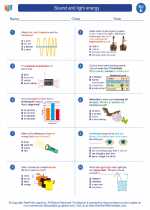Vitamin B12
Vitamin B12, also known as cobalamin, is a water-soluble vitamin that plays a key role in the normal functioning of the brain and nervous system, as well as in the formation of blood. It is one of the eight B vitamins and is essential for various bodily processes.
Sources of Vitamin B12
Vitamin B12 is naturally found in animal products, including meat, fish, poultry, eggs, and dairy products. It is not found in plant foods, so vegetarians and vegans may need to rely on fortified foods or supplements to ensure an adequate intake of vitamin B12.
Functions of Vitamin B12
Vitamin B12 plays several important roles in the body, including:
- Formation of red blood cells
- Supporting neurological function
- DNA synthesis
- Energy production
Deficiency and Health Implications
A deficiency in vitamin B12 can lead to a range of health problems, including anemia, neurological issues, and in severe cases, irreversible nerve damage. Symptoms of vitamin B12 deficiency may include fatigue, weakness, constipation, loss of appetite, and neurological changes such as numbness and tingling in the hands and feet.
Recommended Intake
The recommended dietary allowance (RDA) for vitamin B12 varies by age and life stage. For example, the RDA for adults is 2.4 micrograms per day. Pregnant and breastfeeding women may require higher amounts of vitamin B12.
Study Guide
To study and understand the topic of Vitamin B12, it is important to focus on the following key points:
- Understand the sources of Vitamin B12 and how different dietary choices can impact intake.
- Learn about the functions of Vitamin B12 in the body, including its role in red blood cell formation and neurological health.
- Recognize the symptoms and health implications of a Vitamin B12 deficiency.
- Memorize the recommended dietary allowance for Vitamin B12 and the groups of people who may require higher intakes.
- Consider the impact of Vitamin B12 on different life stages and situations, such as pregnancy and lactation.
It is also helpful to explore case studies or real-life examples of individuals with Vitamin B12 deficiency and the consequences of inadequate intake.
Additionally, understanding the importance of Vitamin B12 for overall health and well-being can provide context for the significance of this nutrient in the diet.
By focusing on these key points and understanding the broader implications of Vitamin B12, one can gain a comprehensive understanding of this important nutrient.
.◂Science Worksheets and Study Guides Fifth Grade. Sound and light energy

 Activity Lesson
Activity Lesson
 Worksheet/Answer key
Worksheet/Answer key
 Worksheet/Answer key
Worksheet/Answer key
 Worksheet/Answer key
Worksheet/Answer key
 Worksheet/Answer key
Worksheet/Answer key
 Vocabulary/Answer key
Vocabulary/Answer key
 Vocabulary/Answer key
Vocabulary/Answer key
